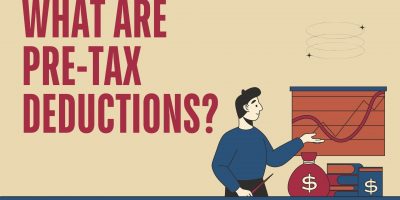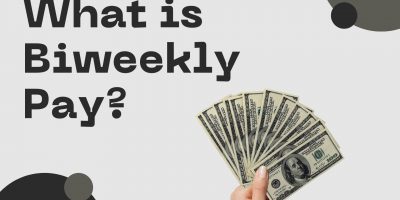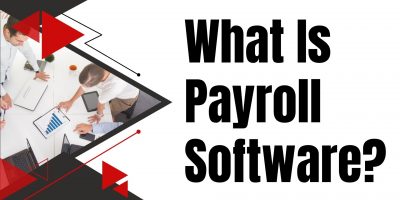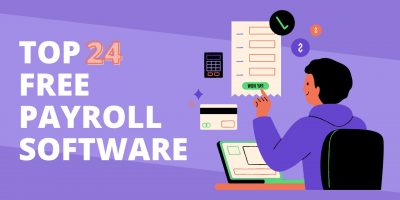
What Are Pre-Tax Deductions?
Learn how pre-tax deductions can be a great work perk to get many company benefits and insurance while saving money.

One of the employee benefits of being a federal worker is obtaining allotment loans in times of emergency. Federal government workers have multiple ways to borrow money quickly, even if they are already in debt or have poor credit scores.
Federal employee payroll deduction loans allow employees to settle emergencies or make meaningful purchases without creating other financial difficulties in the future.
The steady income, lower chances of default, and job security of federal employees are only some of the reasons creditors enjoy approving these loans.
A federal employee payroll deduction loan is a loan where the money is automatically deducted from the borrower’s paycheck towards repayment of the loan. In other words, the repayment is put on autopilot.
The interest rates, loan amount, and repayment plan are agreed upon by the lender and debtor before the deductions begin.
This type of loan is popular among federal employees because it allows them to repay their debt without budgeting or worrying about missed payments.
At the same time, lenders are more willing to approve applicants when they allot an amount from their paycheck funded by a trustworthy third party – the government.
The lender withdraws money directly from the borrower’s payroll account every two weeks to repay the obligation.

The federal government offers numerous student loan programs and legislation to help employees finance their education.
The Federal Stafford Loan is the most popular loan program.
It is available to undergraduate and graduate students and offers low-interest rates and generous loan limits.
Another famous student loan program is the Federal Perkins Loan, available to students who demonstrate exceptional financial need. Like Stafford loans, the Perkins loans offer low-interest rates and generous loan limits.
The difference between Stafford and Perkins loans is that unsubsidized Stafford loans are available to everyone regardless of financial need. On the other hand, Perkins loans are awarded only to students exhibiting exceptional financial needs.
Moreover, not all schools offer Perkins loans.
For both loans, the lender is the US Department of Education rather than a bank or financial institution.
The US government offers several types of loans to help federal employees meet various financial needs, including education expenses, home mortgages, and other personal expenses.
There are a number of government-backed loan programs which vary depending on the country and the status of the borrower. While the variety of loans available may make it confusing to select one, these loans aim to help prevent a debt spiral for federal employees.
There are two types of allotment loans that are available to federal employees:

When choosing a loan plan, one thing to remember is that not all loan programs are created equal. Some loans have lower interest rates, while others have easier qualifications.
For this reason, it is essential to research and understand your loan terms before signing any paperwork.



To be eligible for a federal loan, employees must meet specific requirements.
They must be a U.S. citizen or permanent resident and, among other requirements, must be employed by the federal government in a full-time or part-time position.
Eligibility is usually limited to federal government personnel and USPS, including those working for CA, TSA, HHS, and many other non-military government organizations. Also eligible for payroll deduction loans are employees at a non-federal government agency that offers direct-payroll deductions for loans.
Moreover, common requirements are to have established employment of at least one year, be over 18 years of age, and not be in bankruptcy.
Over 43 million Americans have a poor credit score of under 599.
A low credit score can make it difficult for people to get approved for traditional loans. Allotment loans for federal employees with bad credit can give them access to the financial assistance they need, despite their bad credit.
These allotment loans are accessible for government employees to qualify for even when they have a poor or thin credit record. The employment status in a government institution is already enough of a guarantee for lenders; therefore, the approval process is relatively simple and easy.
This makes the allotment loan process reliable for urgent matters at a sensitive time.

Federal employee payroll deduction loans come with some significant advantages, such as:
Despite the low-interest rates and easy application process, federal employee payroll deduction loans do have some disadvantages that need to be considered:
A federal employee payroll deduction loan has many benefits, as it promotes a responsible lending approach for federal government employees. Employees need to understand their loan options to help them make better financial decisions in the future.
Disclosure: Some of the products featured in this blog post may come from our partners who compensate us. This might influence the selection of products we feature and their placement and presentation on the page. However, it does not impact our evaluations; our opinions are our own. The information provided in this post is for general informational purposes only and should not be considered as legal, tax, accounting, or investment advice. For advice on specific issues, please consult with a qualified professional.
Browse our curated list of vendors to find the best solution for your needs.
Subscribe to our newsletter for the latest trends, expert tips, and workplace insights!

Learn how pre-tax deductions can be a great work perk to get many company benefits and insurance while saving money.

Find out why biweekly payments are currently the most popular option in the US.

Explore the ins and outs of running payroll and the different methods and payroll services businesses use to compensate their employees.

Streamline your payroll processes and ensure accuracy with free payroll software solutions.
Used by most of the top employee benefits consultants in the US, Shortlister is where you can find, research and select HR and benefits vendors for your clients.
Shortlister helps you reach your ideal prospects. Claim your free account to control your message and receive employer, consultant and health plan leads.